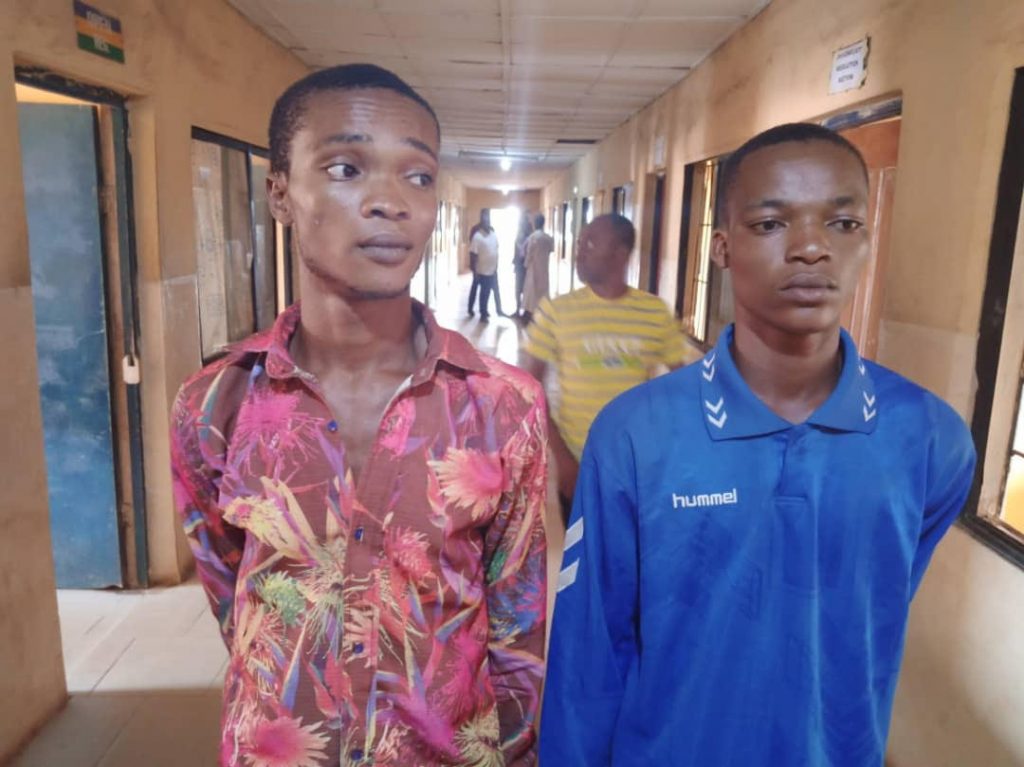But one can’t be involved in the tendency to dismiss off-handedly the few positive moments that we have. It’s the mentality a columnist must have if he must influence one person. Just one person who would appreciate the lofty, edifying, few good moments our nation has, rather than those vituperation that provide no solutions to problems which pervade our public space. That’s the mentality behind this particular piece.
Meanwhile, last Friday, I noted that I would mention, today, my number one reason for the piece, “Political Science and Journalism, it’s a knock-out”, published that same day. Something that the Lagos State deputy governor, Obafemi Hamzat, did, not long ago, was that reason, the spur for last week’s piece. So, technically, the current piece is the concluding part. What did Hamzat do? The reader would have to be patient and follow me, because outside of journalism I’m a story-teller, one with a head for telling it in great detail such that I’ve always been grateful to my editor for indulging me for eternally breaching the word limit he has set.
Not long ago, Lagos State held the local government election. Well, Lagos State TV wouldn’t serve its viewers anything but live events at polling stations across the state. (Kudos to my colleagues at the TV station for a job well done that time). Political heavyweights across the state were casting their votes and naturally journalists wouldn’t let them escape without hearing what they had to say regarding the conduct of the election. That was when they caught up with the deputy governor. There were many questions that journalists would have for a big catch such as Hamzat, so on that occasion he was heavily put to task.
One of the questions he was asked was why, in his view, the electorate didn’t come out in the early hours of the day to cast their votes, but waited till much later in the day. Hamzat didn’t give an armchair response that time. Rather, he gave me the impression of a man who thinks things through. For he didn’t just offer any response. He didn’t, in a dismissive manner, rationalise what was happening as a roadside analyst would. He responded in a manner I’ve never heard any Nigerian politician respond to issues as they concern our political and democratic processes in my entire adult life. It was what made his response unique, the reason he got my attention. It’s even more unique for the simple reason that knee-jerk responses and solutions from public officials to many national challenges are one main reason we are where we are in this nation. Hardly are the measures we apply in the face of some national challenges anything more than the first idea in the head of some public official. Sometimes, these are officials who have not the faintest informed idea about the matter for which they proffer solutions. We’ve been travelling that road for so long.
It so happens that whenever some of us point to the danger of this kind of approach to national issues, we get the kick from those who are long on insults but short on reasoning. It was the kind of kick I got after I questioned the huge funds to be expended on the construction of some railway lines in certain corridors without any empirical study of the economic benefits there would be for us. Regarding such railway lines, no study was shown us except a cabinet minister’s general comment of, “There are many economic benefits.” In other climes, huge investments such as this one are never made by the simple hand-waving “many benefits” argument of an official. Studies are conducted and data are tendered before a single penny is allocated to such huge projects.
This doesn’t happen in Nigeria where, for instance, the setting up of more federal universities could just be the idea of one person who feels each state should have one federal university. Considerations aren’t given to how well the Federal Government is able to fund the existing universities. These things are unlike what happens in nations that have a destination in mind. At the peak of the lockdown over COVID-19 pandemic, for instance, the British government ensured that every decision as to when to reopen each sector of the economy was based on what careful studies by experts indicated. Government officials didn’t take a step without checking what the statistics indicated, within or outside Britain. Each time the Prime Minister, Boris Johnson, stood behind the podium and addressed the nation, he said he would take every decision with regard to locking down or opening up based on what data showed.
As for Britons who wanted to travel to other countries or wanted to return, the British government looked at the data regarding the rise and fall in the rate of infection in those countries as well. Thereafter, it pronounced which country Britons could travel to and would have to be in compulsory isolation when they returned. This is how a nation that means business is run, not that some government official, without any studies to reference, would wake up and decide to expend public fund on a hospital or nomadic school where such would soon be abandoned and overrun by bush, good money wasted. It’s also the way to proffer lasting solutions to every political phenomenon which can help strengthen our political processes. For instance, one reason for the stay-at-home order during elections here is to ensure people vote. But this obviously hasn’t produced results. Did any data indicate that such an order would boost voter participation? Could a study have indicated that other options would have produced better outcomes? We won’t know because we don’t empirically test issues before we take decisions, a mentality from the military era. I suppose one day a government will wake up and give another order, in an effort to get people to vote, without first finding out why the previous order hasn’t achieved the desired objective.
Alright, back to what Hamzat did on the day of the last Lagos LG election. In response to the question journalists asked him, he said well, political scientists had yet to study the phenomenon in order to understand the reason people stayed away in the morning hours only to turn out in large numbers later in the day. He said it’s only when political scientists have conducted a proper study that they’ll be able to inform the government what is responsible for the phenomenon. He adds that it’s then the government will be able to apply appropriate measures needed to remedy the situation. I was so surprised and pleased with this kind of intellectually-inclined response from this thoughtful politician that I felt like applauding him. I imagine that in some viewer’s estimation, Hamzat said something insignificant. With my academic background in Political Science, it’s not insignificant to me, for by saying what he did on that occasion, Hamzat pinpointed one of the greatest barriers to development in this nation: making policies without checking the data.
Here, we throw scatter-brain ideas and money at problems without understanding what the problem is. We often think we do, but the poor outcomes have consistently proved that we don’t. At the time Hamzat spoke, I thought there was something to him. When I take a closer look at his profile which shows him to be a highly educated person and one with a worthy antecedent in public service, I become certain that there’s indeed something different about Dr Obafemi Hamzat.









